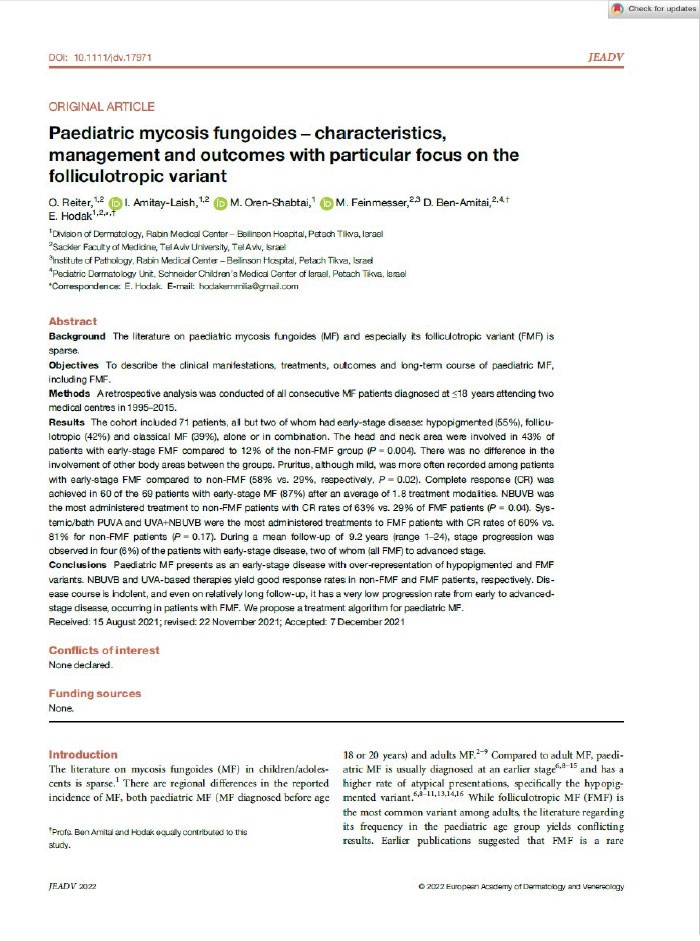- Reiter,1,2 I. Amitay-Laish,1,2 M. Oren-Shabtai,1 M. Feinmesser,2,3 D. Ben-Amitai,2,4,†
- Hodak1,2,*,†

40 Einstein St., Ramat Aviv Mall Tower, 3rd floor, Tel Aviv
דף הבית » Paediatric mycosis fungoides – characteristics, management and outcomes with particular focus on the folliculotropic variant

Ofer Reiter, Mor Miodovnik, Emily Avitan-Hersh, Nadav Astman, Nir Nathanson, Ayelet Rishpon, Aviv Barzilai and Alon Scope Introduction: Early detection
Ofer Reiter; Avner Leshem; Rivka Alexander-Shani; Michael Brandwein; Yotam Cohen; Algit Yeshurun; Michael Ziv; Eran Elinav; Emmilia Hodak; Roni P.
Give us a call or fill in your details and we will get back to you